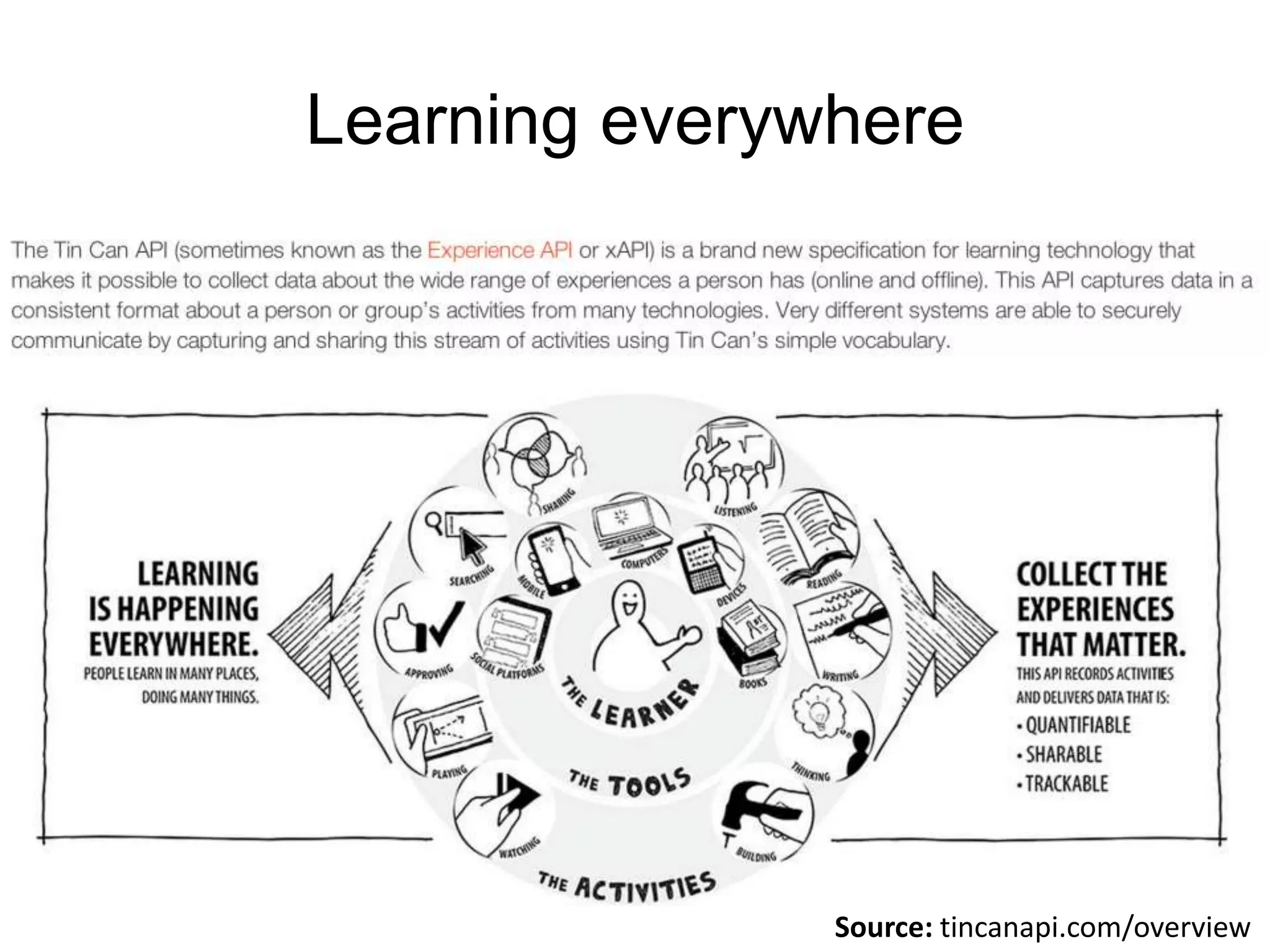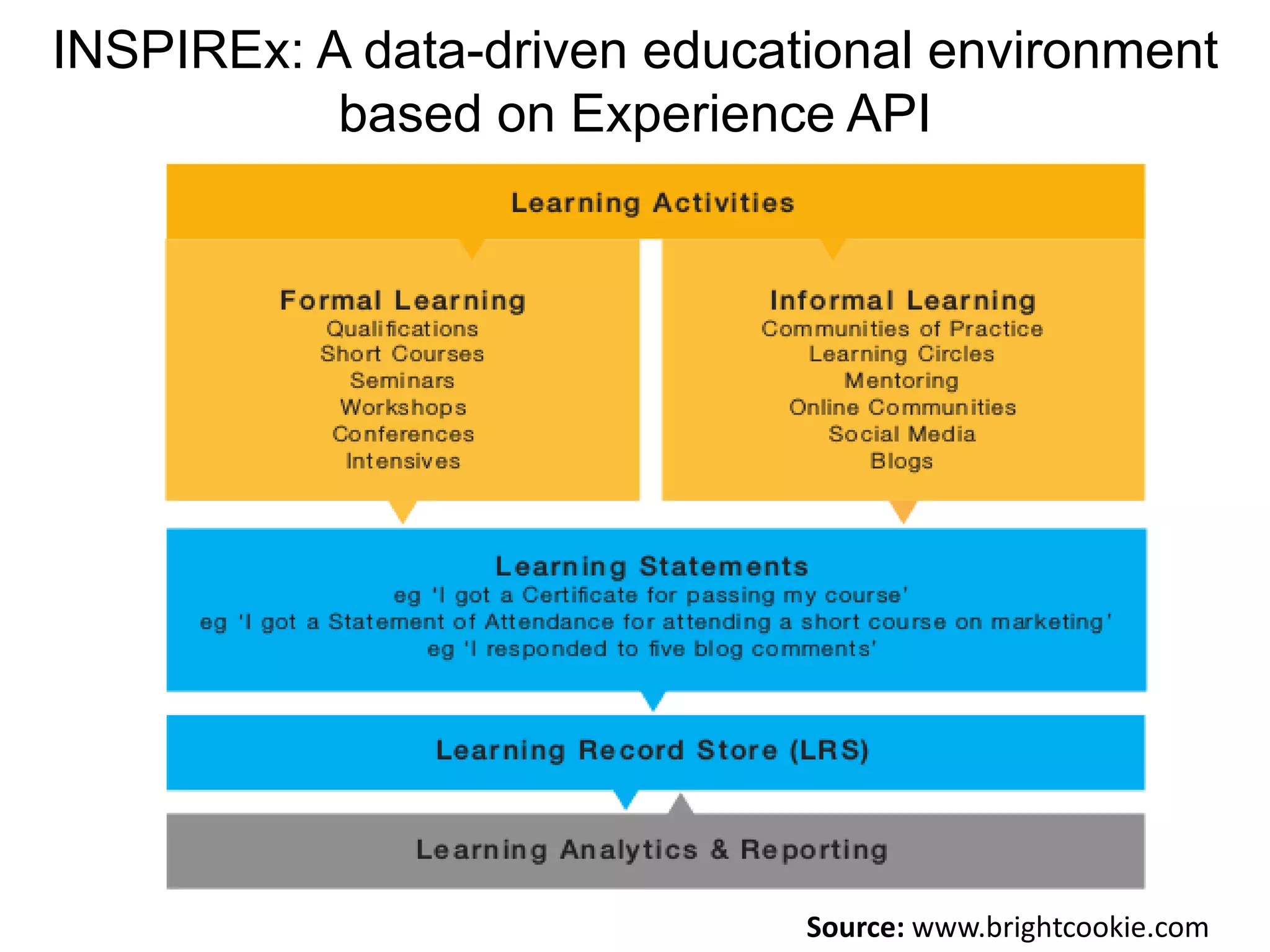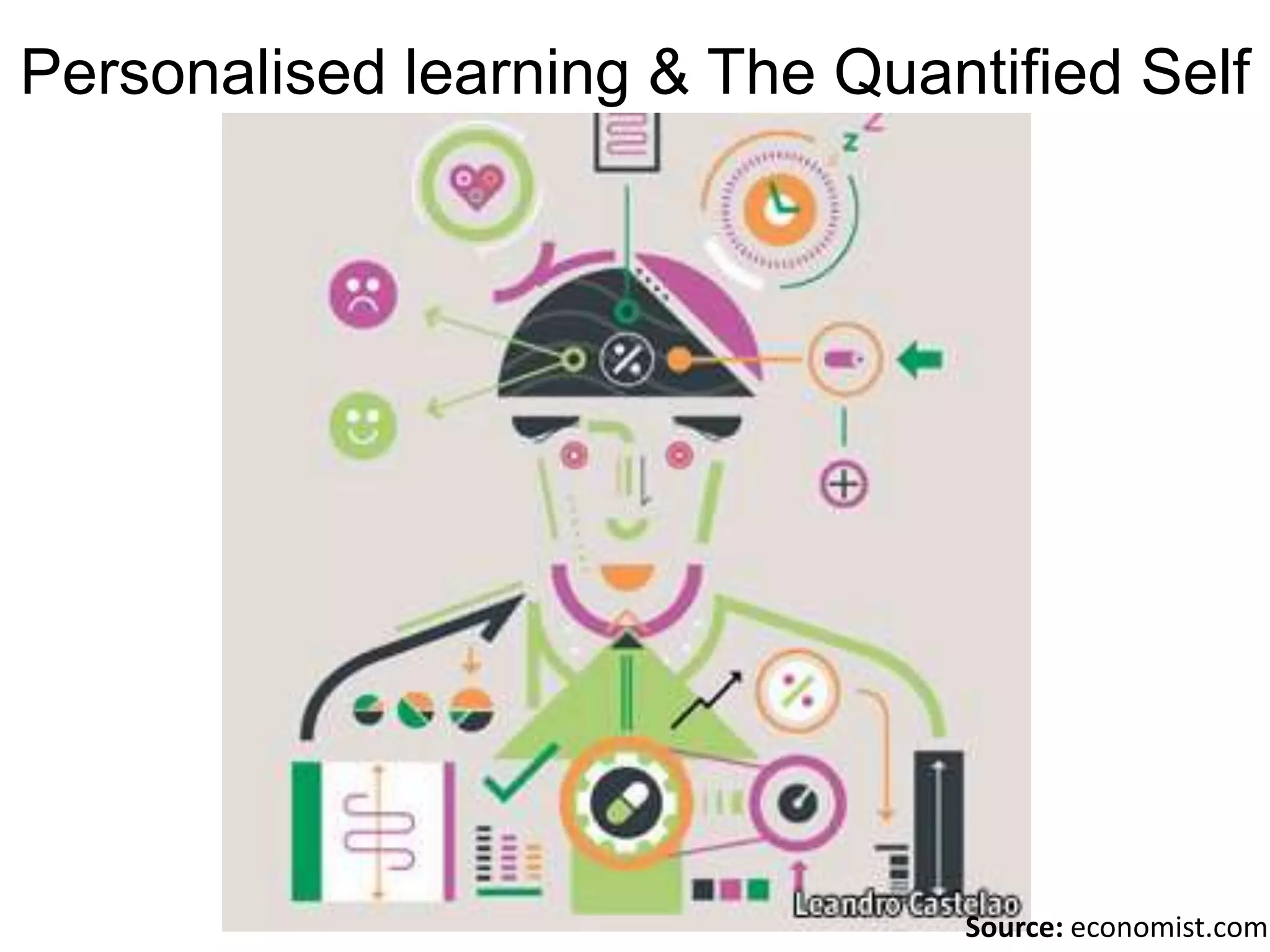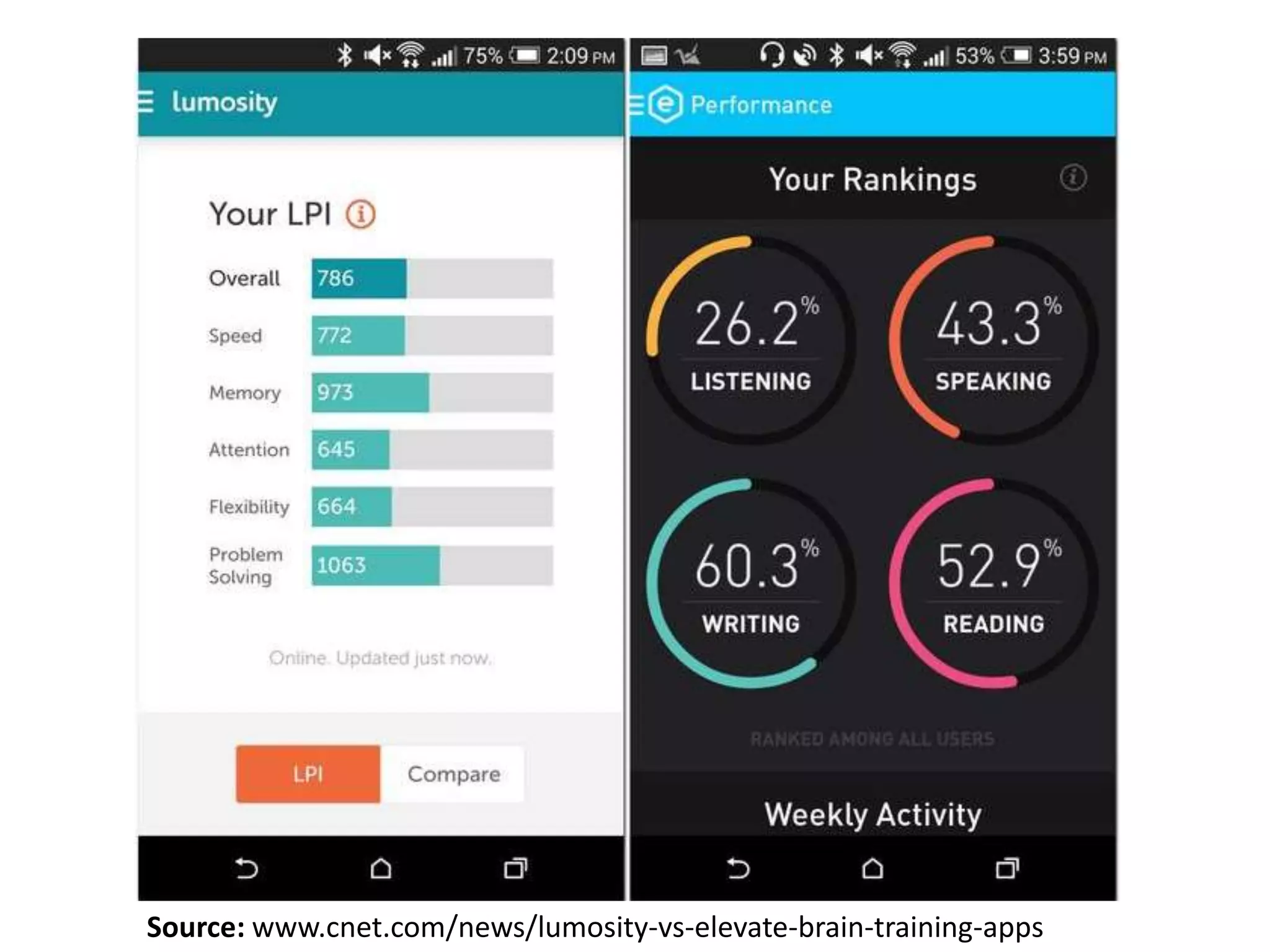1) The document discusses developmental evaluation and the Experience API as tools to help understand innovation and change in educational systems. It focuses on how technology can assist developmental evaluation.
2) It proposes a Technology Assisted Developmental Evaluation (TADE) framework to help teachers and institutions use student data to support educational decision making.
3) The Experience API and tools like INSPIREx aim to create personalized, data-driven learning environments by capturing student learning experiences across different systems and making that data available.












![Technology Assisted Developmental
Evaluation
• ‘What? So What? Now What? (Gamble, 2008, p. 47)
• Learning & change should be expansive and transferable and not
limited to contemporaneous testing (Engeström, 2006; Wiggins &
McTighe, 2011, p. 5)
• The theoretical perspectives draws on Vygotsky (1978), Activity
Theory (Engestrom, 2001), Variation Theory (Marton & Tsui, 2004)
and the concept of Communities of Practice (Lave & Wenger, 1991)
• Towards a Technology Assisted Developmental Evaluation (TADE)
framework that helps teachers and institutions with their data work in
ways that support educational decision making in a practical and
accessible form (Leonard, Fitzgerald & Bacon [under review])
• “A system is not the sum of its parts, but rather, the product of the
interaction of the parts” (Russell Ackoff)](https://image.slidesharecdn.com/learningdesignandtechnology-developmentalevaluationandtheexperienceapi-141105074011-conversion-gate01/75/Learning-design-and-technology-developmental-evaluation-and-the-experience-api-13-2048.jpg)







